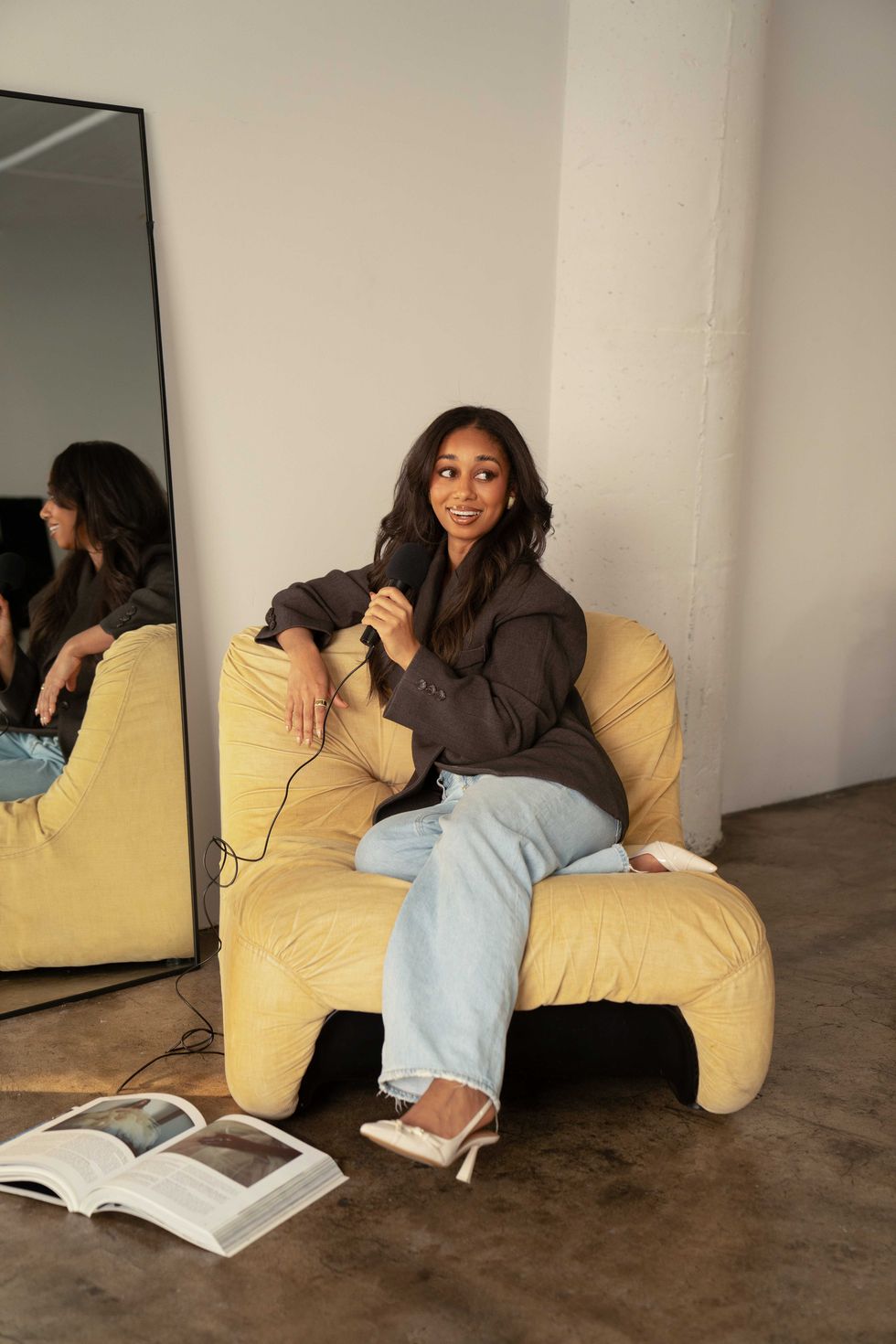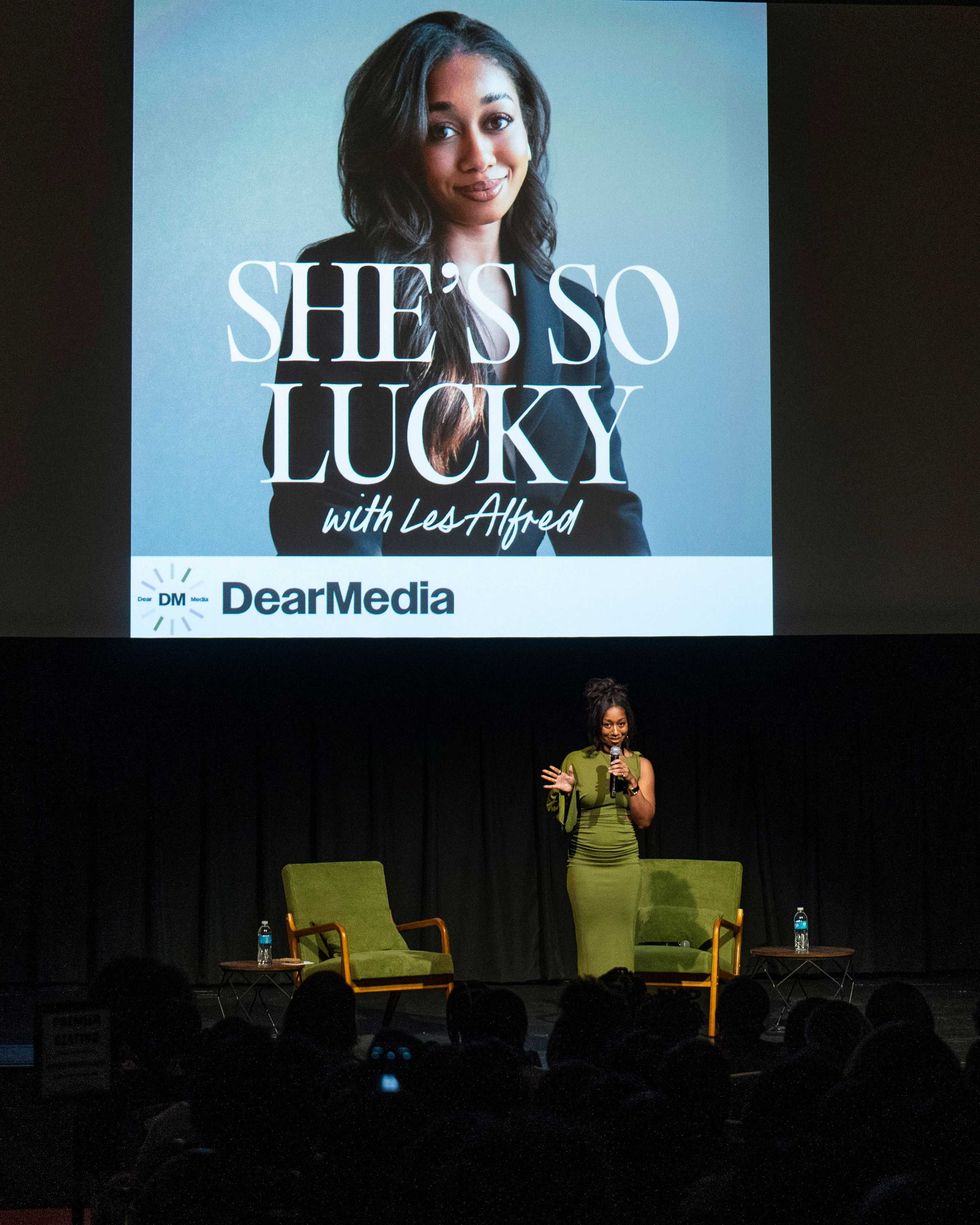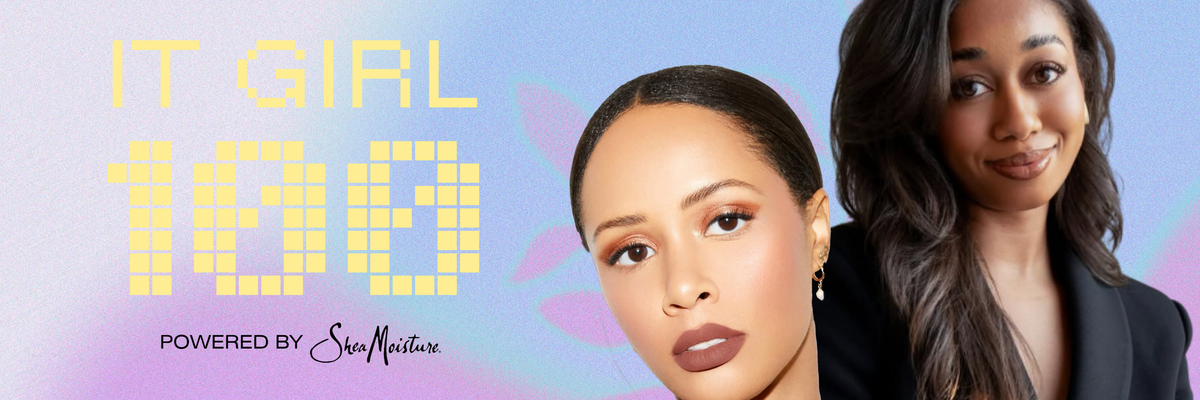Consider These Key Things Before Quitting Your Job For Self-Employment

Self-employment is something many people prefer or aspire to, as being your own boss is both admirable and empowering. And women are bossing up more than ever, representing almost 40% of all self-employed professionals. Being self-employed myself, I can attest to the benefits, but like everything in life, there are two dueling sides to every coin. And if you're considering taking the leap from 9-to-5er to self-employed, there's a lot to consider before totally pulling the plug on your day job.
Here are a few things to know, from my own experience, before transitioning into self-employment:
1. Recognize that self-employment is not entrepreneurship.
There are key differences between being an entrepreneur and being self-employed that many people get all mixed up and confused about. The terms are often used interchangeably, but they are definitely not the same.
A self-employed person operates just like an employee, often offering services and talents to business owners, nonprofits, or organizations. An entrepreneur typically offers goods and services to a client or customer, registers their business for tax purposes, and can reap the benefits of resources like business bank accounts, financing, and investments.
When you're self-employed, you often don't get paid if you don't work, most typically as a freelancer or on a project-by-project or client-by-client basis. When you're an entrepreneur, you can successfully scale a business where you can reap the benefits whether you're actively working in it or not.
You can indeed launch a one-person business (i.e., as a limited liability company or LLC), but there are requirements related to that, particularly when it comes to taxes. There are also things to consider, such as lifestyle, goals, and risk tolerance. The annual and financial obligations entrepreneurs have aren't the same as self-employed professionals, like additional taxes, filing fees, and mandatory financial reports.

pixdeluxe/Getty Images
(I know some of y'all entrepreneurs might be reading this with a side-eye, but hey, not every self-employed person is a business person, and some simply might not want the extra maintenance and responsibilities of having a registered business, no matter the perks.)
While I'm not discouraging any self-employed person from launching a business, knowing the difference between the two is important because it sets the tone for how you approach the work that you do, your expectations on the lifestyle and requirements, and what benefits might be afforded to you.
Many entrepreneurs can employ people, scale their businesses for expansion, get capital investment, and even take days, weeks, or months off without having to actually work yet still reap the benefits. This is often not the case for a self-employed person whose salary largely depends on actual work hours, paid invoices, and strategic budgeting.
2. Inform yourself about the tax obligations and other financial shifts that might happen once you are self-employed.
When you're working a 9-to-5, your company handles taking taxes out of each check. This is not the case for self-employed folk. There's a quarterly schedule that must be followed for federal taxes, and there are other regulations based on the state where you primarily work (even if you're working remote). If you're used to having a hands-off approach to taxes (other than going to the tax preparer once a year), you definitely want to shift your expectations and get to know all the information you can about self-employment taxes.
Also, the way you budget might be a bit different when you're self-employed. If you find, for example, that you're constantly living check to check or that you're used to a guaranteed paycheck every two weeks, you'll need to shift the way you look at how money flows in your household.
Self-employment can include periods where you're not getting paid as consistently, and many companies work with invoices that are paid 30, 60, or even 90 days after you've finished the work you've done for them. Keep this in mind and plan accordingly based on the industry you'll be working within.
Talk to a tax or personal finance professional to find out about how your finances and tax obligation might change once you decide to become self-employed, and then set up a plan so that you won't get caught slipping come Tax Day. The process is different for self-employed people, and this is an important aspect of the process that will save you lots of money and stress in the long run.
I learned the hard way to negotiate, upfront, a set period of time for my services (when applicable and reasonable) to be written into a contract and to set my rates not solely based on my previous salary but considering additional costs like WIFI, travel, health insurance that I have to pay for out-of-pocket, home office technology and tools, and the time it actually takes to complete tasks. The pandemic brought home how super-important this was because, as a freelancer, someone can simply cut you with no compensation or warning.
3. Get to know your true strengths and weaknesses when it comes to work ethic, skills, environment, and motivation.
Self-employment is definitely not for the faint at heart. It can be a constant hustle in the beginning, and if you're not careful, you might end up wondering how you'll pay your rent or car note simply because you don't have clients or work lined up. It's good to be a self-starter and super-organized. It's also good to brush up on your marketing, communications, and sales skills because you'll need to pitch yourself and your background in order to land projects and clients.
While working your full-time job, take a few courses or find a self-employed mentor so that you can strengthen your skills in areas where you might need some improvement (i.e., pitching, online marketing, social media branding, or project management.) Practice self-employment on the side as an intern or with a side hustle so you can learn a bit more about yourself that you might be overlooking while serving as an employee.
Being self-employed means you become multiple departments in one person. For example, your current company provides support like assistants, accounting departments, legal teams, and IT, so you might not be used to having to handle all of those things on your own. For some, this can be overwhelming, while others find the challenge invigorating and worth the sacrifice if it means having autonomy and financial and time freedom.
Also, if you're motivated to do your best by being around teams or working in an office, self-employment might be too isolating for you. True, there are groups and co-working cultures you can join, but it's definitely not the same as having built-in comradery of fellow full-timers at a company. Be aware of these things so that you're realistically making a choice that suits the life you want to live and the work experience you want to have in order to thrive.

PeopleImages/Getty Images
4. Create an emergency fund solely for the transition.
While you're working a 9-to-5, create a separate savings account just for the transition. Anything can happen between quitting your job and getting your first freelance gig, client, or project. When I first stepped out to be self-employed, I thought I had the dream client, only to find out that it wasn't a good fit and I'd be looking for a new one after six months. This might happen several times before you really hit a groove, find your fit, build up your reputation, and get consistent work.
Having a financial cushion outside of your usual emergency fund helps to soften the blow if something like a client loss, a late invoice payment, or an unexpected work-related expense (i.e., computer replacement or broken equipment repair) comes up.
Sometimes, self-employment can include certain up-front costs like renting an office space, investing in new technology or other tools, travel expenses, or hiring other self-employed professionals (i.e., a consultant, web designer, or tax preparer), so you'll want to be smart, be prepared, and keep your receipts.
5. Understand your why.
Every great and sustainable journey starts with a good reason---a "why" that keeps a person going. If you know your why, you're less likely to just give up when things get rough, and you're less likely to make costly, mentally and physically draining mistakes. I decided to go for full-time self-employment because, after more than a decade working in my field, I really felt burned out at the time, began to resent not being promoted as quickly as I thought I should, and saw that I could make more money contracting my skills and talents out than working full-time for one company.
I also loved that I could pick and choose who I worked with and align my values with the projects that I was part of (versus being forced due to being a full-time employee beholden to a contract and the so-called values of a corporation or company.)
I've made quite a few mistakes over the years, but my why remains the same, and when times get hard, I simply remember the overall peace, flexibility, and autonomy I have in serving the women millennial audiences I want to serve through journalism and communications.
6. Be sure that you're offering services or expertise that can be used for years to come and that's competitive.
If you're considering self-employment, be sure your skills are competitive and have a future of need. I knew, even a decade ago, that much of the media industry was going the freelance route, and today, with layoffs becoming commonplace and full-time employee budgets being cut, contract work has become the name of the game. I saw this industry shift coming a mile away, and, like my early foray into digital media before publishing houses were monetizing it, I knew eventually, freelance work would be abundant and preferred.
If you're already doing a job that is in high demand or you offer something niche and one-of-a-kind, working for yourself might be the move. But if you've found that your current skills might be obsolete in the next two to five years, try learning another skill, shifting how you do the work you do, or tapping into another passion that can ensure you're offering something valuable in a market where it's direly needed.
Self-employment can be a joy and a pain, and for many of us, it's the only choice for self-care, mental wellness, and financial freedom. If you're considering taking the leap, take into account these tips and go forward in bold confidence, informed, and prepared.
Let’s make things inbox official! Sign up for the xoNecole newsletter for daily love, wellness, career, and exclusive content delivered straight to your inbox.
Featured image LaylaBird/Getty Images
Because We Are Still IT, Girl: It Girl 100 Returns
Last year, when our xoNecole team dropped our inaugural It Girl 100 honoree list, the world felt, ahem, a bit brighter.
It was March 2024, and we still had a Black woman as the Vice President of the United States. DEI rollbacks weren’t being tossed around like confetti. And more than 300,000 Black women were still gainfully employed in the workforce.
Though that was just nineteen months ago, things were different. Perhaps the world then felt more receptive to our light as Black women.
At the time, we launched It Girl 100 to spotlight the huge motion we were making as dope, GenZennial Black women leaving our mark on culture. The girls were on the rise, flourishing, drinking their water, minding their business, leading companies, and learning to do it all softly, in rest. We wanted to celebrate that momentum—because we love that for us.
So, we handpicked one hundred It Girls who embody that palpable It Factor moving through us as young Black women, the kind of motion lighting up the world both IRL and across the internet.
It Girl 100 became xoNecole’s most successful program, with the hashtag organically reaching more than forty million impressions on Instagram in just twenty-four hours. Yes, it caught on like wildfire because we celebrated some of the most brilliant and influential GenZennial women of color setting trends and shaping culture. But more than that, it resonated because the women we celebrated felt seen.
Many were already known in their industries for keeping this generation fly and lit, but rarely received recognition or flowers. It Girl 100 became a safe space to be uplifted, and for us as Black women to bask in what felt like an era of our brilliance, beauty, and boundless influence on full display.
And then, almost overnight, it was as if the rug was pulled from under us as Black women, as the It Girls of the world.
Our much-needed, much-deserved season of ease and soft living quickly metamorphosed into a time of self-preservation and survival. Our motion and economic progression seemed strategically slowed, our light under siege.
The air feels heavier now. The headlines colder. Our Black girl magic is being picked apart and politicized for simply existing.
With that climate shift, as we prepare to launch our second annual It Girl 100 honoree list, our team has had to dig deep on the purpose and intention behind this year’s list. Knowing the spirit of It Girl 100 is about motion, sauce, strides, and progression, how do we celebrate amid uncertainty and collective grief when the juice feels like it is being squeezed out of us?
As we wrestled with that question, we were reminded that this tension isn’t new. Black women have always had to find joy in the midst of struggle, to create light even in the darkest corners. We have carried the weight of scrutiny for generations, expected to be strong, to serve, to smile through the sting. But this moment feels different. It feels deeply personal.
We are living at the intersection of liberation and backlash. We are learning to take off our capes, to say no when we are tired, to embrace softness without apology.
And somehow, the world has found new ways to punish us for it.

In lifestyle, women like Kayla Nicole and Ayesha Curry have been ridiculed for daring to choose themselves. Tracee Ellis Ross was labeled bitter for speaking her truth about love. Meghan Markle, still, cannot breathe without critique.
In politics, Kamala Harris, Letitia James, and Jasmine Crockett are dragged through the mud for standing tall in rooms not built for them.
In sports, Angel Reese, Coco Gauff, and Taylor Townsend have been reminded that even excellence will not shield you from racism or judgment.

In business, visionaries like Diarrha N’Diaye-Mbaye and Melissa Butler are fighting to keep their dreams alive in an economy that too often forgets us first.
Even our icons, Beyoncé, Serena, and SZA, have faced criticism simply for evolving beyond the boxes society tried to keep them in.
From everyday women to cultural phenoms, the pattern is the same. Our light is being tested.

And yet, somehow, through it all, we are still showing up as that girl, and that deserves to be celebrated.
Because while the world debates our worth, we keep raising our value. And that proof is all around us.
This year alone, Naomi Osaka returned from motherhood and mental health challenges to reach the semifinals of the US Open. A’ja Wilson claimed another MVP, reminding us that beauty and dominance can coexist. Brandy and Monica are snatching our edges on tour. Kahlana Barfield Brown sold out her new line in the face of a retailer that had been canceled. And Melissa Butler’s company, The Lip Bar, is projecting a forty percent surge in sales.

We are no longer defining strength by how much pain we can endure. We are defining it by the unbreakable light we continue to radiate.
We are the women walking our daily steps and also continuing to run solid businesses. We are growing in love, taking solo trips, laughing until it hurts, raising babies and ideas, drinking our green juice, and praying our peace back into existence.
We are rediscovering the joy of rest and realizing that softness is not weakness, it is strategy.
And through it all, we continue to lift one another. Emma Grede is creating seats at the table. Valeisha Butterfield has started a fund for jobless Black women. Arian Simone is leading in media with fearless conviction. We are pouring into each other in ways the world rarely sees but always feels.

So yes, we are in the midst of societal warfare. Yes, we are being tested. Yes, we are facing economic strain, political targeting, and public scrutiny. But even war cannot dim a light that is divinely ours.
And we are still shining.
And we are still softening.
And we are still creating.
And we are still It.

That is the quiet magic of Black womanhood, our ability to hold both truth and triumph in the same breath, to say yes, and to life’s contradictions.
It is no coincidence that this year, as SheaMoisture embraces the message “Yes, And,” they stand beside us as partners in celebrating this class of It Girls. Because that phrase, those two simple words, capture the very essence of this moment.
Yes, we are tired. And we are still rising.
Yes, we are questioned. And we are the answer.
Yes, we are bruised. And we are still beautiful.

This year’s It Girl 100 is more than a list. It is a love letter to every Black woman who dares to live out loud in a world that would rather she whisper. This year’s class is living proof of “Yes, And,” women who are finding ways to thrive and to heal, to build and to rest, to lead and to love, all at once.
It is proof that our joy is not naive, our success not accidental. It is the reminder that our light has never needed permission.
So without further ado, we celebrate the It Girl 100 Class of 2025–2026.
We celebrate the millions of us who keep doing it with grace, grit, and glory.
Because despite it all, we still shine.
Because we are still her.
Because we are still IT, girl.
Meet all 100 women shaping culture in the It Girl 100 Class of 2025. View the complete list of honorees here.
Featured image by xoStaff
How Les Alfred & Kayla Greaves Built Their "It Girl" Brands With Intention
It’s not always easy being an “It Girl,” but Les Alfred, host of She’s So Lucky podcast, and Kayla Greaves, beauty expert, reporter and consultant, never promised it would be. Instead, the two creators are forging their own paths based on resilience. Les originally launched her podcast, formerly Balanced Black Girl, from her bedroom in Seattle after creating fitness content elsewhere online.
Last year, she left her corporate job to scale the Dear Media-hosted series, which she rebranded earlier this year. Meanwhile, Kayla has worked as a journalist and editor, including for InStyle as Executive Beauty Editor. In 2023, she left the company to focus on consulting, hosting and speaking engagements.
Despite launching media careers from different pathways, the two New York-based women have forged a friendship where they can discuss their ambitions and challenges.
Both women are part of xoNecole’s It Girl 100 Class of 2025, recognized in the Viral Voices category for the impact they’ve made through storytelling, creativity, and authenticity. Together, they represent what it means to build an "It Girl" brand with integrity and depth. In the spirit of SheaMoisture’s "Yes, And" ethos, Les and Kayla embody the freedom to be multi-layered as women evolving boldly into every version of themselves.
This conversation has been condensed and lightly edited for clarity
On Forging Their Own Paths
Les Alfred: Being a Jane of all trades is incredibly challenging. And one of the challenges I've faced is that the scope of what podcasters now need to do has increased so much. When I first interviewed you in 2019, I was still very new at it, but I remember being on a Skype call with you from my bedroom in Seattle. That was how I ran the show. And that was good enough. That is absolutely not good enough these days. The scope and the quality keeps increasing, but the resources that you have don't necessarily increase in order to remain competitive.
I get asked so many questions from people who want to get into podcasts and they want to get started. Most of the time, I'm just like, 'I don't have tips for you.' Because, one, I don't know what it's like to start in this current environment. Two, I know what it takes to contend and be consistent in this environment. The barrier of entry is a lot higher in terms of having something of quality than it was before.
On Balancing Ambition and Rest
Kayla Greaves: I've had to make a very clear effort to slow down and just not take on as much. Yes, you're running a business, but you're also living your life. I had one of those days yesterday. I just laid down and listened to white noise for hours because I just needed my brain to just be clear. I called a friend. I cried.
I'm starting over again today. The sun is out. It's a new day. And that's just sometimes what you have to do. You can't show up for your audience or for other people, if you can't show for yourself. I think that creativity comes from a place of living your life and having genuine experiences, and then sharing those experiences through your art.
"I had to give myself permission to let myself grow publicly in ways that I'd already done personally."

Courtesy
On Evolving Through Growth and Rebranding
Les: I didn't create Balanced Black Girl until 2018, but I started blogging and creating content and doing things under the Balanced brand in 2014. I was 24 years old at the time. Now, I'm 36. The things that were important to me, the perspective that I had and the stories I wanted to tell were entirely different. I think I had to give myself permission to let myself grow publicly in ways that I'd already done personally. The show isn't really about wellness anymore. And that shift started happening a couple of years ago.
When we started expanding into more lifestyle topics, more self-help topics [and] talking about entrepreneurship, the audience responded really well. That was when the show really started to grow and take off. And that was what got so much more engagement than the episodes back in 2020 when I was doing hour-long deep dives on gut health.
Rebranding the show was something I've been thinking about for a long time. When I was finally like, 'Oh, I need to do this,' honestly, was the 2024 presidential election. I was like, these people are about to be in here acting crazy. I do not feel safe with my business name being what it is. I don't want to be targeted for any BS. We saw what they did to the Fearless Fund.
"You have to balance your integrity with your income."

Courtesy
On Integrity Over Income
Kayla: I have many other interests aside from beauty. I'm growing and I'm changing as a person. I'm not the same person I was when I started at InStyle in 2019 before the pandemic rocked everybody's world. I don't think reviewing every single lipstick that comes out is exciting or interesting, because everybody does it now, and everybody feels like they're qualified to speak on things that they're not qualified to speak on. I'm currently in that pain point of growth.
I don't think I have always been in environments where I've been encouraged to branch out on my own ideas. I finished Ina Garten’s memoir maybe a month ago. She kept repeating this quote in her book. She said, ‘What goes in early, goes in deep.’ Now that I'm on my own and I don't have the resources of a traditional media company, which is what I have become accustomed to, sometimes it's difficult for me to be like, 'Okay, just go ahead with the thing.'
I think, Les, just the other day, you reposted somebody saying that they let go of a five-figure deal and then got double the next day because it just didn't feel aligned for them. Those are the things that happen. I have to find a balance of, 'Okay, how do I keep myself afloat?' And that may mean I may not be balling out of control just yet, but I'm okay for now. I can buy myself nice things every once in a while, but you have to balance your integrity with your income.
Les: There are just certain lines that I'm not willing to cross. Especially when I created more wellness content, one of those lines was I will not promote any sort of weight loss product. All of these GLP-1s all want to advertise on my podcast. I actually have nothing against those types of products, but I don't ever want someone to look at what I'm putting into the world and think that I'm saying that they need to feel a certain way about their bodies.
Even if the money is great, that's not for me to say, and that's not the type of message that I want to put out here. Or, I had another kind of brand deal come through that would have required me to divulge things about my personal life that I just don't really want my audience knowing about me, and bringing them along on journeys that I just find personal and I want to keep offline. I don’t want to be known for dragging my mess all over the internet for a buck.
I don't want to be known for being an influencer. I would love to be 1,000% in on my podcast, scale it, have it grow to be a media empire where I'm producing and putting out other bodies of work. For now, until that other side of the business really picks up and gets to the point where I want it to be, I kind of need to play the influencer game a little bit to live in this expensive city. But I'm gonna do it on my terms. It's a constant compromise that I'm coming to with myself.
"You can never make a big vision come to fruition if you're sitting and you're waiting for somebody else to tell you exactly what to do."

Courtesy
On Mutual Admiration and Friendship
Les: Something that I really admire about you in having known you for the past couple of years is you don't wait for a roadmap. You jump in, you roll up your sleeves, and you do it. You can never make a big vision come to fruition if you're sitting and you're waiting for somebody else to tell you exactly what to do.
Kayla: Well, first of all, I want to say thank you for saying that, because that means so much to me, and it's very affirming. That's exactly how I feel about you. I remember, even at your first live show, you're like, ‘Oh my god, I'm so stressed. I don't know what I'm doing.’ And, the shit sold out. And, you know, and now, like, you see the growth of the podcast. And you have nearly 61,000 subscribers on YouTube. I just checked recently.
I talk a lot about people that really just need to not say anything on the internet, because it's so frustrating as somebody who grew up as a traditional journalist. You want people to fact check and ask thoughtful questions and have good conversations. I've never said that about you. I've always loved your podcast. And I've sent a lot of your episodes to friends when they're going through specific things that you're talking about.
This season has been a little bit slower to me, so you've been a constant source of inspiration, and it's just been such a pleasure to see your podcast grow despite the challenges you've had. I know it's not easy, but you continue to grow and continue to push through, and I really admire that as somebody who sat and cried yesterday and listened to white noise.
And this is why I tell you all the time, you really do inspire me. I love you a lot.
Les: Oh my gosh, I love you a lot. I'm so glad that the podcast brought us together.
Tap into the full It Girl 100 Class of 2025 and meet all the women changing game this year and beyond. See the full list here.
Featured image courtesy









